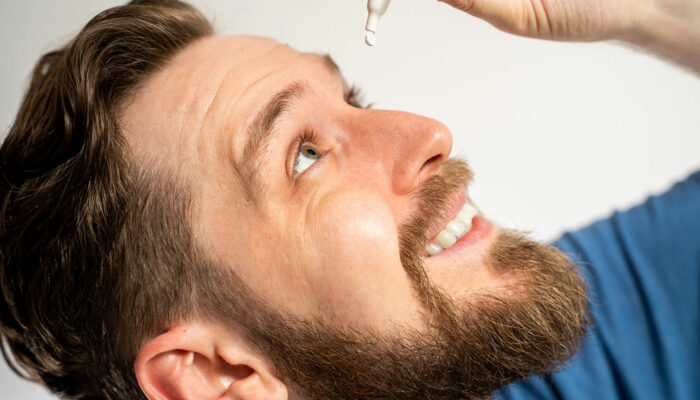Top 4 ways to maintain eye health

Maintaining eye health is essential to avoid age-related vision problems as well as diseases. Here, making certain lifestyle changes and adopting healthy habits like better nutrition can help strengthen the eyes and lower the risk of age-related eye diseases. While some eye conditions can be managed with corrective glasses or contact lenses, others may require extensive treatment. So, here are a few ways to maintain eye health and prevent damage in the first place:
1. Make better nutritional choices
Maintaining a healthy food regimen is crucial for overall well-being, including the health of the eyes. Here, vegetables such as carrots, spinach, and kale are rich in antioxidants and vitamins which promote eye health. Additionally, fruits like oranges and berries are excellent sources of eye-protective nutrients. Additionally, foods that are rich in zinc, such as chickpeas and pumpkin seeds, can help protect the eyes from macular degeneration. Omega-3 fatty acids and lutein found in foods like nuts, flaxseeds, legumes, and broccoli are essential for maintaining healthy eyes and supporting vision. So, the abovementioned nutrient-rich foods should be added to daily meals to maintain eye health. A healthy food regimen is just one aspect of maintaining eye health, and only by combining it with the following changes can one ensure that their eyes stay healthy.
2. Protect the eyes from the sun
Protecting the eyes from the harmful sun rays is essential for maintaining eye health. Prolonged exposure to ultraviolet (UV) radiation can increase the risk of various eye conditions, like cataracts, macular degeneration, and even sunburns on the eye surface. So, here are some important tips for limiting sun exposure and protecting the eyes from environmental damage:
– One should wear sunglasses that provide and support 100% UV protection whenever they are outdoors. Here, one can look for sunglasses with a UV rating of 400 or those that claim to offer “100% UV protection”. This will ensure the eyes are adequately shielded from UVA and UVB rays.
– One should also consider using protective eyewear when engaging in activities that expose the eyes to hazards like construction work. This can prevent injuries and protect the eyes from the sun’s damaging rays.
– Finally, wearing a wide-brimmed hat or visor can provide additional protection by blocking the sun’s rays from directly reaching the eyes. This is especially beneficial in outdoor areas with intense sunlight or around reflective surfaces, like beaches or snowy regions.
3. Practice good eye hygiene
Maintaining good eye hygiene is essential for keeping the eyes healthy and free from infections and irritation. Whether one wears contact lenses or not, practicing proper eye hygiene can help prevent issues such as dryness, redness, and discomfort. Here are some practices worth considering:
– One key habit to adopt is washing the hands thoroughly before touching the eyes or handling lenses. This helps prevent the transfer of dirt, oils, and bacteria to the eyes, reducing the risk of infections.
– While many wear colored lenses without a prescription, contact lenses can be prescribed to correct disorders like myopia, hyperopia, and astigmatism. Regardless of the purpose of wearing lenses, one should clean and disinfect them as recommended by an eye care professional. This includes using the appropriate lens solutions and avoiding tap water or saliva to clean contacts, which can introduce harmful microorganisms to the eyes.
– One should avoid wearing both regular and colored lenses for longer than recommended and give the eyes regular breaks. This allows the eyes to breathe and reduces the risk of strain and dryness.
4. Get regular eye exams
Regularly scheduling eye exams is a crucial part of maintaining good eye health. Even if one has perfect vision, getting the eyes checked every year can help doctors detect potential issues early on and prevent them from worsening. During an eye exam, an optometrist or ophthalmologist can assess the overall eye health, test the vision, and screen for common eye conditions such as glaucoma, cataracts, and macular degeneration. They can also evaluate the need for glasses or eye lenses or update the prescription if necessary. By scheduling regular eye exams, one can ensure that any changes in their vision or eye health are addressed promptly. Prevention is always preferable and better than treatment when it comes to health conditions. So, one should make it a habit to schedule routine eye exams and prioritize eye health.
So, making better food choices, protecting the eyes from excessive sun exposure, adopting good hygiene practices, and getting regular eye examinations can help one maintain eye health. Further, if one notices any changes in the appearance of the eyes or the vision, they should consult a doctor and get the eyes examined. With proactive effort, one can improve as well as maintain eye health.





